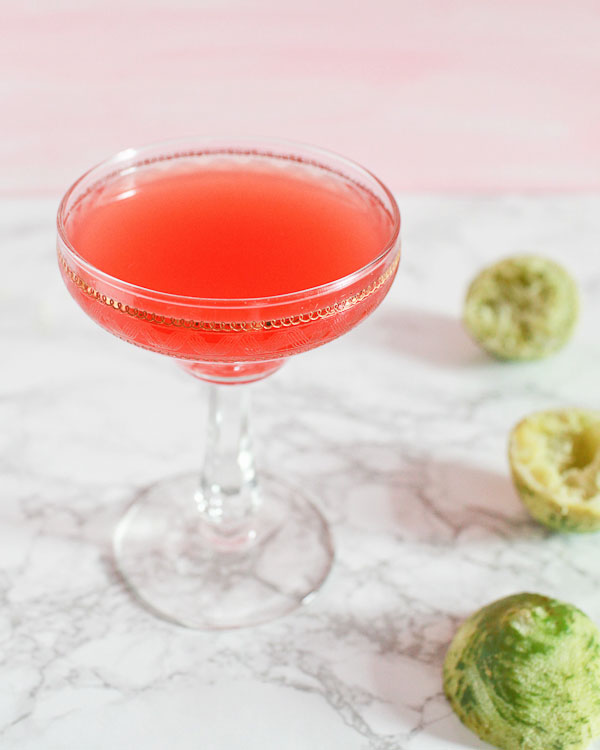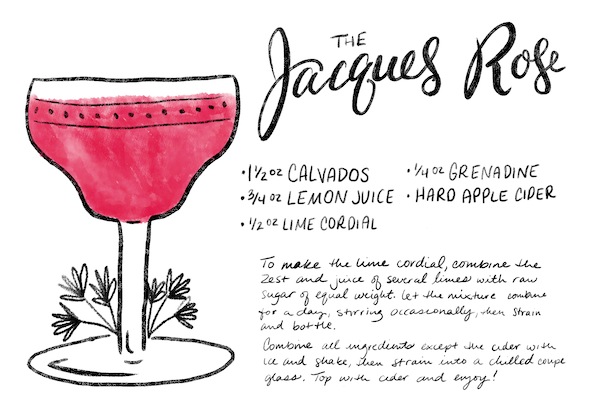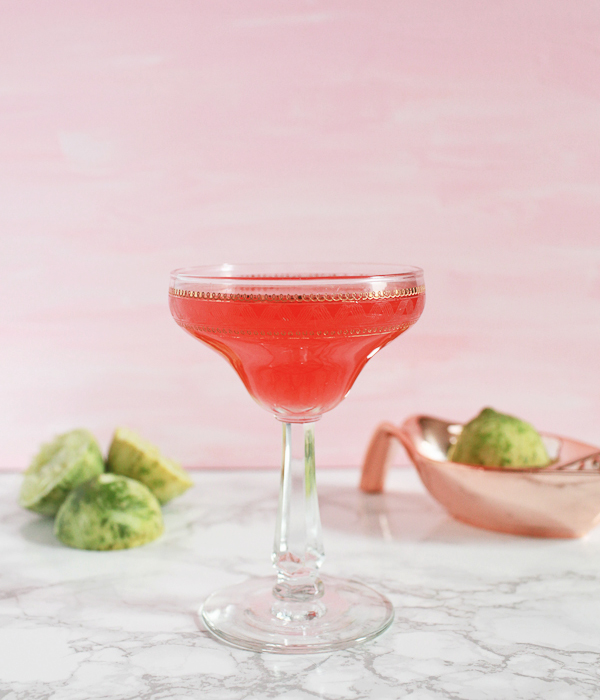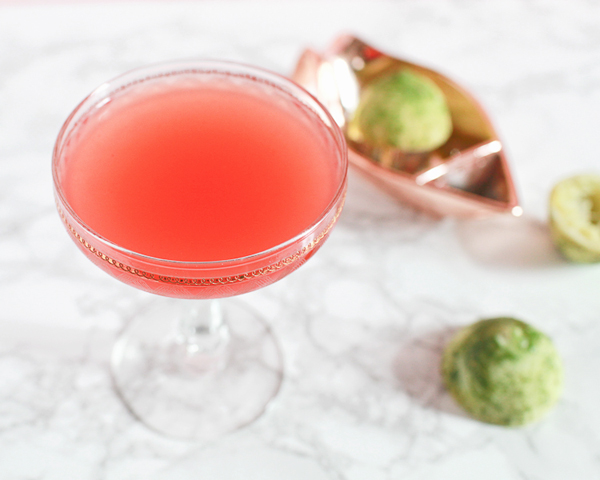Okay, so I fibbed a little. Last week I promised a return to a classic Champagne cocktail for our last drink this month, but I just didn’t have it in me. I’m actually not the biggest fan of most classic Champagne cocktails! So we’re back again this week with a spin on Death & Co‘s Jane Rose, which is in turn a spin on the classic Jack Rose – we’re calling ours the Jacques Rose. We’ll also be talking a little about alternative bubblies to Champagne and what they can bring to a drink, too. – Andrew


Illustration by Shauna Lynn for Oh So Beautiful Paper
The Jacques Rose
1 1/2 oz Calvados
3/4 oz Lemon Juice
1/2 oz Lime Cordial
1/4 oz Grenadine
Hard Apple Cider
To make the lime cordial, combine the zest and juice of several limes with raw sugar of equal weight. Let the mixture combine for a day, stirring occasionally, then strain and bottle.
Combine all the ingredients except the cider with ice and shake, then strain into a chilled coupe glass. Top with the cider and enjoy!

The original Jack Rose pairs apple brandy, citrus, and grenadine for a fun Sour. The Jane Rose throws in some lime cordial, a gorgeously sweet-tart mixture, and dry Champagne. Our Jacques Rose switches out the apple brandy for Calvados – an apple-based spirit from Normandy that’s a little more rustic than an apple eau de vie – and replaces the Champagne with hard cider. My first try was a little too sweet, tasting more like a Jolly Rancher than a proper drink, so I reduced the grenadine and added more lemon. The result is still a bit sweeter than I’d normally like but is right up Nole’s alley – a sweet, fizzy dessert drink.

Using apple cider instead of Champagne was also a fun way of playing around with the effervescence of a bubbly drink without relying solely on Champagne. Champagne is wonderful, don’t get me wrong, but it’s not the only (and definitely not the cheapest) way of adding fizz to a drink. Sparkling wines from outside the Champagne region of France – Prosecco from Italy, Cava from Spain, or even Crémant wines from elsewhere in France – are often much cheaper than Champagne and can offer much the same palate, as long as you look for dryer versions. But you can also play around with other carbonated drinks, like apple or pear cider or even a tart, fruity lambic beer. Just as long as you look for dryer cider, or else your drinks will end up tasting like candy. Unless that’s your thing.
Pro Tip: Never shake a carbonated ingredient in a sealed shaker, unless you want your shaker to blast apart and send your drink flying everywhere. (I’m not saying at all that I know what this looks like from experience.) Always add a carbonated ingredient like Champagne or hard cider as the last step, after you have shaken your other ingredients.
So that finishes up our month of bubbly cocktails. We’ll be spending February, fittingly, with some hot drinks. Stay tuned! And don’t forget to follow us on Instagram, where we’ve been posting lots of our experiments before they reach our Friday Happy Hour column!
Photo Credits: Nole Garey for Oh So Beautiful Paper

What a beautiful assemblage of flavors! I love the swapping of apple brandy for Calvados. And I agree that there is no need to fork out the cash for a pricy Champagne. I love using Freixenet Cordon Negro Brut Cava for cocktails – great effervescence, dry, and under $20. Thanks for the history on the cocktail, too.